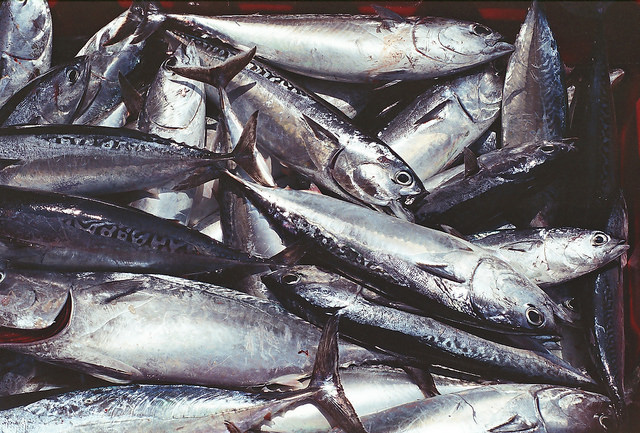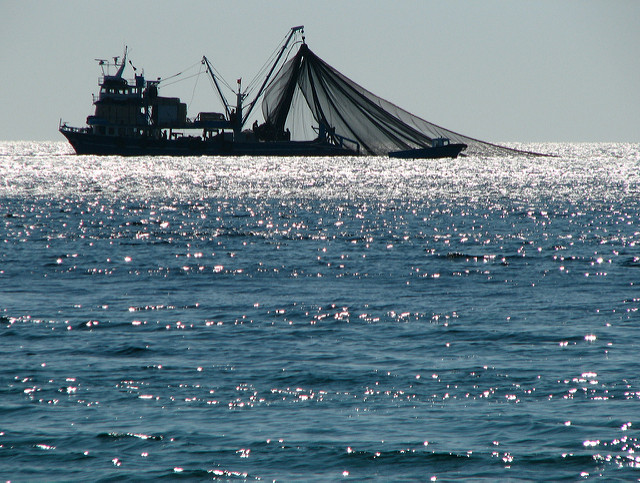A new study published in the Proceedings of the National Academy of Sciences found that if countries can better manage their fisheries then they could help reverse the current ongoing decline in fish stocks due to extensive and widespread overfishing.
The authors confirm several previous studies, including from the Sea Around Us and colleagues, that have argued for many years that overfishing is widespread around the world. The authors state clearly that “… the median fishery is in poor health (overfished, with further overfishing occurring)…” Furthermore, the authors state that “… 32% of fisheries are in good biological health…“, whose converse is that 68% of fisheries are in a bad state, which also matches with other previous studies.
The current study found that if sound management reforms were implemented they could help generate annual global increases in catches and profits; but if current practices continue — often referred to as ‘business-as-usual’ — then there would be a “continued collapse for many of the world’s fisheries.”
The research, under the lead of Dr. Christopher Costello from the University of California Santa Barbara, analyzed a database of 4,713 catch time series representing over 70 percent of officially reported fisheries catches. They found that if all countries could switched to what the authors claim are the best management practices, then global fish populations could double, and fishermen could make substantially more profit.
However, a large number of positive factors would have to fall into place for the study’s scenarios to work. Political gridlock and a massive lack of financial and technical resources generally hamstring most countries — especially in the developing world — from implementing progressive fisheries management strategies. Successful application of stock-specific catch limits (“Total Allowable Catch”) require extensive data and knowledge for regular stock assessments to be performed, and even more crucial, for catches to be monitored and catch limits enforced. Yet in much of Asia and Africa there is an utter dearth of any such assessments, and often even a lack of most basic information on actual catches, including on foreign catches (legal and illegal) taken in the EEZs of countries.
Scientists working on developing countries often use the catch data that countries officially report to the Food and Agriculture Organization of the U.N. for inferences on the status of their fisheries, and so have Costello et al. However, in a recent study by the Sea Around Us, it was found that these data are often inadequate, and do not allow countries to know or fully understand the impacts of foreign industrial fleets in their waters. This research established that in 2010, 30 percent of the global fish catch went unreported globally, and that global catches have been declining strongly since the mid-1990s.
Experts agree that better fisheries management systems are urgently needed. Responding in National Geographic to the paper by Costello et al., Daniel Pauly described the research as “excellent and methodically sound,” and called for improved management, monitoring and enforcement as an essential tool to recover collapsing fish stocks.
Yet what management or even quota system is used matters greatly. In some frameworks the buying and selling of quotas can become quite lucrative, with outside investors often gaining control of entire fisheries by accumulating quotas, with the profits from these quotas moving further and further away from those who actual do the fishing and who depend on fisheries for their livelihoods and for food security.
In countries such as Australia, Chile, Iceland, New Zealand and the US, variations of quota management systems have been in place for years, with a variable range of successes. In the US, which once faced large fisheries collapses, there has been a 70 percent drop in the number of overfished species since 2000, but this is widely attributed to the legal framework, which mandates rebuilding of overfished stocks.
Unfortunately, the number of countries with well managed fisheries is still the exception, and large amounts of investment and political will are needed in order to implement better management practices.
“What matters is that there is a quota that is enforced. The exact technique you use to limit the catch should depend on the country and what is politically acceptable,” said Pauly in National Geographic.



